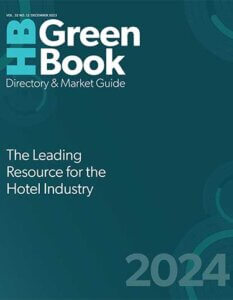Asset managers, like most executives in the industry, had to deal with some heavy challenges this year. Yet, they worked their magic to keep their bottom lines on the plus sideof the ledger.
Hotel Business caught up with Deanna Quan, EVP, asset management, Aparium; Derrick Yee, VP, asset management, Placemakr, and president, Hospitality Asset Managers Association (HAMA); and Peter Ziegler, SVP, asset management, Provata Asset Management, a Procaccianti Company, to discuss what they did right and their predictions for the upcoming year.
—Adam Perkowsky
Has 2023 lived up to your expectations? Why or why not?
Quan: The rooms side has largely met expectations despite some flattening of domestic leisure demand in Q2 and Q3. Food and beverage has been a challenge in 2023 and is something that must be tackled differently going forward.
Yee: 2023 has probably missed expectations for a lot of asset managers. I believe this is a combination of incredibly high expectations coupled with slower than anticipated return in business travel. While things are continuing to improve, and Q1 and Q2 were strong for a lot of marketing year-over-year (YOY), RevPAR growth has slowed in the latter half of 2024.
Ziegler: Generally, 2023 has lived up to our expectations as we had anticipated continued growth over 2022. In 2023, convention and group hotels, as well as those in urban locations, are leading the way as they had the most opportunity for growth/recovery. Leisure/drive-to hotels have been a bit softer than expectations (some of it due to unfavorable weather in the Northeast), but performance remains very strong.
What are the biggest challenges your hotels have faced this year?
Quon: On the operations side, the biggest challenges this year have been labor, F&B and expense creep. Revenues aren’t fully recovered but expenses have made a comeback.
On the asset side, the current lending environment and insurance costs have presented their own unique challenges.
Yee: Labor continues to be one of the greatest challenges. While improving from its worst points, finding consistent staffing remains a challenge in many markets, and the cost of the labor continues to creep up. Expense management outside labor also continues to be a challenge as vendors continue to push pricing and asset managers and operators continue to focus on trying to protect flow through. Finally, insurance costs continue to be front of mind as renewal increase YOY are wiping out much of the revenue gains.
Ziegler: Certainly, costs have continued to increase—particularly labor and insurance. We continue to be creative and recruit the right labor at the right rates and to monitor overtime and limit reliance on outsourced labor.
According to a recent poll, most HAMA members believe RevPAR for the industry as a whole will return to 2019 levels by next year. What are your thoughts?
Quon: In more than half of our portfolio, we will return to 2019 RevPAR levels this year.
Yee: I would agree with those thoughts. There are still a few markets that are struggling to return to 2019 level. However, many markets are back to those levels on a nominal basis and in some case in adjusted basis as well. The only caveat is that given the current instability in the Middle East and what potential impact that could have on travel or the larger economy, that could potentially slow the recovery.
Ziegler: In most markets, we have already seen a full recovery and surpassing 2019 levels. We’re achieving this through rate rather than occupancy. Of course, the issue is the expense creep which has been rising. We need to continue to find ways through the use of labor management tools and technology; revisiting vendor agreements; and getting creative to drive net operating income (NOI).
What is your forecast for the industry for next year?
Quon: I am largely optimistic for our industry next year. Convention calendars are looking more robust, and urban markets are on an upswing.
Yee: I think next year will be a good, but challenging year. I do think we will continue to see business and group demand recover, but we may see some shortfalls in the leisure/transient segment, which has bolstered many markets during the recovery. Expense management will continue to be front of mind, especially when dealing with insurance and real estate tax costs, which are not as readily controlled. Finding other areas to offset will be key to maintaining NOI margins.
Ziegler: We see things continuing to remain strong with RevPAR growth in the mid-single digits on average, with continued growth in those properties that have not yet recovered to 2019 levels, offset by smaller increases for those that have already exceeded 2019 levels.




